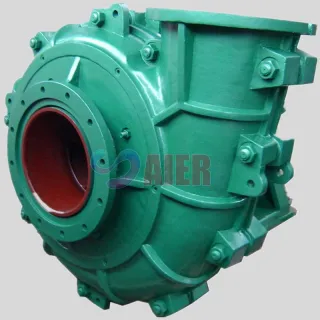okt . 22, 2024 06:14 Back to list
Sump Slurry Pump Manufacturing Facility for Efficient Fluid Management Solutions
Sump Slurry Pump Essential Solutions for Heavy-Duty Applications
In the world of industrial pumping systems, the sump slurry pump stands out as a vital component for managing challenging and demanding applications. These pumps are specifically designed to handle abrasive and viscous materials, making them essential in a variety of sectors, including mining, construction, and wastewater management. Understanding the functionality and advantages of sump slurry pumps can greatly enhance operational efficiency and reduce maintenance costs.
What is a Sump Slurry Pump?
A sump slurry pump is a type of centrifugal pump that is engineered to transport liquid containing solid particles. This pump is typically submerged in a sump or a storage basin where slurry— a mixture of water and solid materials like sand, gravel, or sludge— accumulates. Unlike standard pumps that can struggle with high-solid content fluids, sump slurry pumps feature robust construction and specialized impeller designs that allow them to handle tough materials.
Key Features of Sump Slurry Pumps
One of the defining characteristics of sump slurry pumps is their design. These pumps often incorporate high-chrome materials that provide resistance to wear and corrosion, ensuring longevity even in the harshest environments. Additionally, their robust impeller and volute designs are specifically tailored for high-solid concentration, facilitating efficient fluid movement.
Moreover, sump slurry pumps usually include a large inlet to accommodate high volumes of solid-laden fluids, reducing the frequency of clogs and ensuring continuous operation. They also often come equipped with adjustable speed settings, allowing operators to fine-tune the flow rate according to the specific requirements of their application.
sump slurry pump factory

Applications and Benefits
The versatility of sump slurry pumps makes them ideal for several applications. In the mining industry, for instance, they efficiently transport slurries composed of water and mined minerals. In construction, they are invaluable for dewatering operations, where excess water needs to be removed from excavated sites. Wastewater treatment facilities also rely on sump slurry pumps to manage the sludge generated during the treatment processes.
The benefits of using sump slurry pumps are numerous. They enhance productivity by providing a reliable means of transporting challenging materials, thereby minimizing downtime associated with equipment failures. Additionally, their sturdy design and materials reduce the need for frequent maintenance and replacements, which can be costly in the long run. The ability to customize these pumps for specific applications further increases their value, allowing operators to optimize performance according to their unique operational needs.
Choosing the Right Sump Slurry Pump
Selecting the appropriate sump slurry pump requires careful consideration of several factors, including the type of slurry, flow rate, and head pressure. It is essential to assess the specific characteristics of the materials being handled, as well as the environmental conditions the pump will operate in. Consulting with a reputable pump manufacturer can provide valuable insights and recommendations tailored to your requirements.
Conclusion
In conclusion, sump slurry pumps are essential tools in industries that handle abrasive and viscous materials. Their robust design, efficient operation, and versatility make them invaluable for improving productivity and reducing operational costs. By understanding their functionality and applications, businesses can make informed decisions that enhance their pumping processes and ultimately lead to greater efficiency and profitability in their respective sectors. Investing in high-quality sump slurry pumps is a strategic move towards achieving operational excellence.
-
Wholesale Slurry Pump Closed Impeller Supplier High Efficiency China Slurry Pump Closed Impeller
NewsJul.06,2025
-
High Quality Warman Slurry Pump Drawings Supplier & Factory Reliable Customization
NewsJul.06,2025
-
China SP Slurry Pump Supplier – Vertical Sump Pump Rubber Lined Manufacturer & Factory
NewsJul.05,2025
-
High Quality Submersible Slurry Pump with Agitator Manufacturer & Factory Reliable Submersible Pump Solutions
NewsJul.05,2025
-
Cheap Dredge Pump for Sale – China Cheap Submersible Pump for Wastewater Supplier
NewsJul.05,2025
-
Wholesale Casting Dredge Pump Part - High Quality China Manufacturers & Suppliers
NewsJul.04,2025
